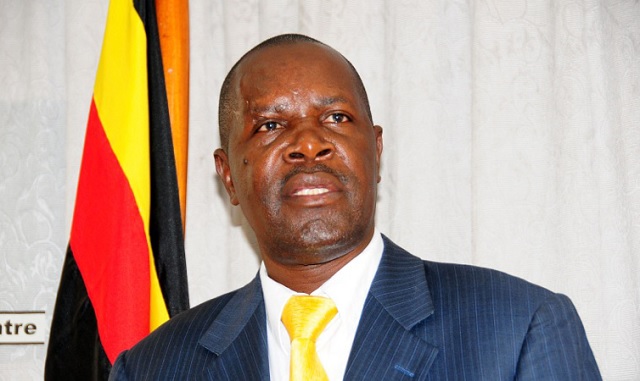The ongoing political rancour over the alleged neglect of the Luwero Triangle, the beacon of NRM revolution compels my recollection of Uganda’s rural transformation journey since 1987 when the government in a fanfare launched the now-forgotten Rural Farmer’s Scheme, and along with it, the Free Tractor Service funded through the Uganda Commercial Bank (UCB) and Cooperative Bank (Co-op Bank) both state-owned.
On 17 September 1987, at a ceremony at Kololo grounds, President Yoweri Museveni launched 100 tractors, and 700 more were later distributed countrywide majority of which went to the Luwero Triangle to kick-start agricultural production.
UCB and Coop Banks were later closed on account of poor management having accumulated unsustainable debt portfolios and bad loans that business people and politicians obtained but refused to repay. Those smart and cavalier politicians and their allies arguing today about returning UCB and Co-op Bank, nostalgia aside, should show the businesses today that the so-called ‘Peoples’ banks’ nourished to sustained success.
The Cooperative Unions of Masaka, East and West Mengo, West Nile, Acholi, Lango, Teso, Bukedi and Bugisu, and Societies too choked on debts, loans, and farmer’s produce they collected but didn’t pay due to bad management, corruption, asset-stripping, and outright theft by their respective local managers and allied politicians. These managers and politicians have chosen to maintain silence, and sometimes blaming Museveni personally for the collapse of Cooperatives in Uganda.
Many younger people may not know that a lot of water has flown under that bridge not entirely in vain with Entandikwa, North Uganda Social Action Fund (NUSAF), Bonnabagagawale, Zonal crops, presidential model farms, NAADS, Operation Wealth Creation, Youth and Women Funds.
Then youth skilling hubs, and Emyooga that targeted rural and urban artisans in iron foundries, metal and wood furniture making, motor and machine repair garages, bakery and confectionary, market vendors, hair salons and beauticians among others.
With economic liberalization and privatization, government on ‘good’ advise of the World Bank and International Monetary Fund (IMF) divested itself from businesses by wholly selling off its corporations and state enterprises to private entities including many Ugandans who presented themselves as bona fide entrepreneurs and business people. But in fact nearly each of them was a speculator who sold off their interests as soon as an opportunity presented itself.
Some got more than two or even three state enterprises on a song, and they are nowhere to be seen on the entrepreneur and business horizon today. Many joined the politics bandwagon, got elected for short stint in parliament or appointed into cabinet, but as the saying goes, the rest is history.
Along the way private commercial Banks-Sembule Bank, Nile Bank, Tteefe, International Credit Bank, Kigezi Bank of Commerce where the Central Bank Governor Tumussime Mutebile (RIP) and four high profile Bakiga government ministers held shares, Greenland Bank owned by Dr Suleiman Kiggundu a former Central Bank Governor, and Crane Bank of business tycoon Sudhir Ruparelia failed.
As President Museveni said at the time as ‘corpses’ they should be buried. Kiggundu and Sudhir tried to kick up political dust as they wailed including through sponsored surrogates in courts and parliament but the Central Bank stood firm for the general good health of the national economy.
At the head of rural transformation has been President Museveni, an ardent sponsor of the ideology of the “mass line” sometimes even where it has been discredited. So today we find ourselves in the midst of another government program, the Parish Development Model (PDM) half-hazardily introduced and being implemented with each of the 12,000 parishes countrywide receiving 100M each financial year starting 2021/22.
And partly because of Museveni’s strong persona many of the leaders find themselves unable, especially because they haven’t understood the program well, to provide logical counter-proposals even where the program isn’t achieving the desired objectives. Without dwelling on the type and quality of policy discourse within government machinery, parliament, as an open source, provides an interesting scenario in what goes on behind closed doors like cabinet and other similar platforms.
Government officials including ministers and most MPs running around the country with PDM are unable to directly tell the president the uncomfortable truths that the program in its current form has gone astray and is unlikely to achieve the desired objective of increasing production, productivity, and socio-economic transformation and bring the rural hordes into the commercial money economy.
Traveling through and sampling Kapelebyong, Amuriat, Kumi, Butaleja, Bugiri and Tororo districts, especially in Iyolwa and Mulanda sub-counties that am very familiar with, there is ample evidence to show that the lists of beneficiaries have been grossly compromised.
Similarly, fund disbursement is sluggish and extortion by lower intermediate officials is widespread with some beneficiaries receiving paltry amounts as low as 300,000 instead of the one million. Many beneficiaries are not spending the money on enterprises they selected but rather on immediate household needs including food, school fees and social indulgencies like marriage ceremonies.
Therefore, unless a drastic correction is undertaken, PDM is standing on the sharp edge of judgment, if not failure altogether.
Ofwono Opondo is the Spokesperson of the Government of Uganda and the Executive Director of Uganda Media Center
If you would like your article/opinion to be published on Uganda’s most authoritative news platform, send your submission on: [email protected]. You can also follow DailyExpress on WhatsApp and on Twitter (X) for realtime updates.



